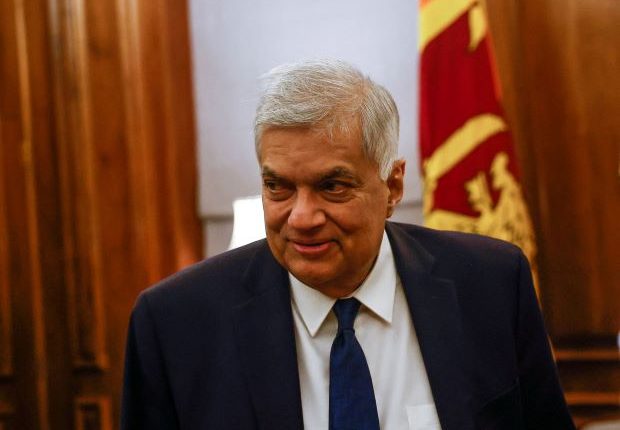By Shihar Aneez
COLOMBO – Sri Lanka President Ranil Wickremesinghe has temporarily got a breather to go ahead with his reform agenda in line with the International Monetary Fund (IMF) reforms after the island nation’s Election Commission told the Supreme Court that it cannot hold the Local Government polls on the scheduled date.
However, analysts see a growing public anger unless Wickremesinghe implements some policies to improve the public sentiment after his government raised personal income taxes to as high as 36% and increased electricity tariffs to unprecedented levels. Both moves have angered the public amid rising protests against them.
The Election Commission on Monday (20) told the Supreme Court that it does not have funds to hold the election on the scheduled date of March 9.
Already the Election Commission has indefinitely postponed the postal vote scheduled to be held later this week due to lack of funds to print the ballots.
The election was scheduled to be held on March 9 and most analysts have predicted President Wickremesinghe’s centre-right United National Party (UNP) and his ruling coalition, nationalist Sri Lanka Podujana Peremuna (SLPP), led by former prime minister Mahinda Rajapaksa will face an imminent defeat.
Wickremesinge has clearly stated that he does not want to have an election until the country sees recovery from the current economic crisis.
“The election was more of a political opinion than for people to exercise their franchise. Most people are not interested in the polls,” said Kusal Perera, a political analyst and columnist.
Anti-Rajapaksa sentiment
“The opposition parties want to capitalize the anti-Rajapaksa sentiment and prove that the current government does not have the people’s mandate. But people are in fact struggling. Also this is not an election that could change the policies through parliament.”
Wickremesinghe over the weekend signalled that the polls could be held next year after the economy stabilized, without mentioning the election. The next parliament poll can be held anytime soon from March this year if the president dissolves the Parliament before the tenure ends in August 2025.
Wickremesinghe on Saturday (18) told a gathering that “following the country’s economic recovery, next year it would be in a position to decide on the future it wants, with the use of the ballot”.
“This is against the Constitution. The executive (president) cannot take away the right to exercise people’s franchise,” said Migara Doss, a civil and public lawyer.
“The Election Commission is an independent body. It is the duty of the Election Commission to ask the Finance Secretary to find the money to hold the election and order the government printing press to print the ballot papers. Instead, it seems they have succumbed to the pressure.”
Frustration builds up
People are frustrated with Wickremesinghe government’s upward tax revision and 66% electricity tariff hike from February 15.
Finance Ministry officials have said the worst is yet to come as there are some more difficult reforms such as “prior approvals” for a $2.9 billion International Monetary Fund (IMF) loan. The IMF had agreed to the loan in September, but the global lender’s Executive Board is yet to approve the loan.
Supporters of opposition parties, state-sector trade unions, and banking sector employees have been protesting almost on a daily basis. A protest by the main opposition Samagi Jana Balavegaya (SJB) was dispersed with police firing tear gas and water cannons on Monday.
A collective group of professionals has warned the government of a massive protest on March 1 in the event of a government failure to resolve the tax hike issue.
“Election is one of the ways people venting out their anger and frustration. The dragging of the election could lead to people coming out in more fierce ways unless the president manages to deliver something substantially to ordinary people who are facing hardships in ensuring essentials,” Perera said.
“This includes subsiding food and transport for those who are earning 25,000 rupees ($70) or less monthly to cushion the huge burden to the families.”
-economynext.com



Comments are closed, but trackbacks and pingbacks are open.